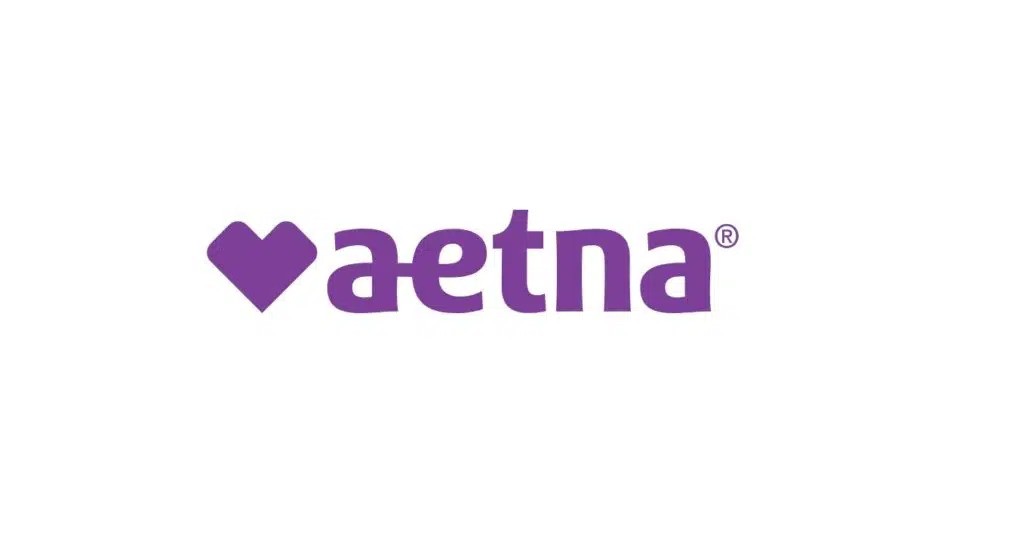Aetna is an insurance company that provides several products and services, including health insurance. This page will cover some necessary information for individuals looking to use Aetna health insurance to cover drug and alcohol rehab services.

Aetna overview
Aetna comprises a group of companies including Aetna Life Insurance Company and various healthcare and health insurance services. Aetna was formed in the 1800s and today over 39 million people use Aetna health insurance. [1]
Does Aetna health insurance cover substance use disorder treatment?
Yes, Aetna health insurance does cover substance use disorder treatment. Since the implementation of the Affordable Care Act in 2014, health insurance policies have been required to cover treatment for mental health conditions and substance use disorders. [2]
The amount of coverage for these treatments will vary depending on your plan, the severity of your condition and treatment requirements, and which provider you choose. Some plans will cover most or all of the cost of substance use disorder treatments, while others may require out-of-pocket payments to cover a percentage of the cost. [3]
Using in-network providers can reduce how much you need to pay out-of-pocket, as most in-network providers will be entirely or mostly covered by your plan. Before arranging your treatment, it is recommended to contact Aetna to confirm which services and providers will be covered by your plan and how much you may be required to pay for your treatment.
What types of addiction do Aetna cover?
Coverage for substance use disorder treatments does not tend to vary depending on the type of substance or addiction. Most addictions will be covered by Aetna health insurance, including:
- Adderall
- Alcohol
- Amphetamine
- Benzodiazepines
- Cocaine and crack cocaine
- DMT
- Fentanyl
- Ibogaine
- Ketamine
- Marijuana
- Meth
- Methadone
- Modafinil
- Neurontin
- Opiates, such as morphine, codeine, and heroin
- Prescription opioids, such as hydrocodone and oxycodone
- Salvia
- Stimulants
- Suboxone
- Tramadol
- Trazodone
Tobacco use disorders and nicotine dependence may not be covered, including the various types of cessation treatment and nicotine replacement therapies. [4]
Do they cover inpatient treatment?
Yes, Aetna will cover some or all of the cost of inpatient treatment, such as residential treatment and detox or rehab centers. This will depend on your plan and the provider you choose. In-network treatment providers will often be mostly or entirely covered by your plan, while out-of-network centers will require some out-of-pocket payments. [3][5]
There are rehab centers across the US that are in-network with Aetna health insurance, so finding a suitable placement close to home should be possible. To find out more about available in-network providers, contact Aetna to discuss your options.
Do they cover medically assisted treatment?
medications. Individuals undergoing detox treatment may require medications to ensure their safety during this time and to manage withdrawal symptoms. Similarly, some people may require long-term medications as a maintenance treatment.
Contact Aetna to find out which medications are covered by your plan. Necessary medications will likely be covered, which can include medications for alcohol use disorder and opioid use disorder detox and maintenance.
Opioid use disorder
Medications that may be covered by Aetna and are commonly used to treat opioid use disorder include: [6]
- Buprenorphine: Buprenorphine is a long-acting opioid that is commonly used to treat opioid use disorder. It can reduce withdrawal symptoms and cravings during detox and can be used as a maintenance treatment to help prevent relapse.
- Suboxone: Suboxone contains buprenorphine and naloxone and is also used during detox or long-term maintenance of opioid use disorder.
- Methadone: Methadone is a long-acting opioid that can also be used to treat opioid-dependent individuals during detox or as a long-term maintenance treatment.
Alcohol use disorder
Medications that may be covered by Aetna to treat alcohol use disorder include disulfiram, commonly referred to by the brand name Antabuse. It can be used as a short-term treatment during withdrawal or as a longer-term maintenance treatment to help prevent relapse and maintain abstinence. [7]
Does Aetna Health Insurance cover outpatient treatment?
Aetna health insurance covers outpatient substance use disorder treatment. Outpatient programs typically involve attending individual and group interventions at a facility. For a low level of treatment, this will be for a total of under nine hours per week, while a higher level of outpatient treatment will involve more extensive interventions. [5][8]
The amount of coverage provided by Aetna will vary depending on the level of outpatient care required, your insurance plan, and the provider you choose to use. [3]
What therapy, counseling, and aftercare services are covered?
Aetna covers a range of aftercare services, including Continuing Care, a weekly support group for individuals who have recently undergone substance use disorder treatment. Depending on your individual plan and the requirements of your condition and treatment plan, they may also cover other ongoing treatments. Contact Aetna directly to discuss your aftercare options. [8]
Treatments that are beneficial to individuals going through addiction recovery and can be utilized following inpatient or outpatient care include: [9]
- Cognitive behavioral therapy (CBT)
- 12-step programs
- Group therapies
- Motivational incentives or interviewing
Aetna also offers 360 Behavioral Health, a helpline service that members can call for guidance and support on mental health and substance use, before or after utilizing rehabilitation services. [10]
FAQs
What length of treatment do they cover?
The length of treatment covered by Aetna health insurance will depend on your plan and the provider you use. Some people require 30-day treatment programs, while others may require longer treatment. Contact Aetna to discuss your treatment plan and the level of coverage they will provide. [3]
How can I contact Aetna to find out more?
You can call the phone number written on your health insurance ID card to discuss your plan with someone. Alternatively, you can log in to your account on the Aetna website to review your plan details or chat with someone online. [11]



